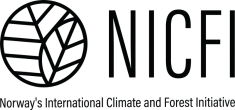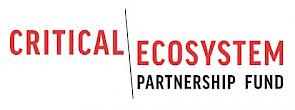Most effective enforcement operation against illegal wildlife and drugs in Asia-Pacific Fired up for new phase
Shanghai, China – Last week, TRAFFIC supported Chinese Customs’ information sharing event of the highly successful Operation Mekong Dragon (OMD). Initiated by China and Viet Nam Customs, this is the most effective and successful international law enforcement joint operation against the trafficking of endangered species and drugs in the Asia Pacific region.
With more than 70 participants in attendance, including Customs officials from 17 countries and regions all demonstrating their commitment against wildlife trafficking and other crimes, the next Phase was introduced. This will build on the successes of the four earlier phases that have already recorded a significant increase in seizures.

© TRAFFIC / Linda Chou
The event, supported by TRAFFIC in collaboration with the United Nations Office on Drugs and Crime (UNODC) and World Customs Organization (WCO), reflected on the successes and sought to prepare attendees to enter Phase V with renewed vigour.
“Operation Mekong Dragon is a flagship program which demonstrates that regional cooperation is the key to achieving successful seizures throughout illicit supply chains and ensuring regional security," Mr WANG He, the Deputy Director General of the Anti-Smuggling Bureau, General Administration of China Customs.
In 2022, OMD IV saw increased seizures of illicit drugs and wildlife products intercepted during their illegal transboundary journeys. To date, over 1,362 drug and wildlife trafficking cases have been reported to World Customs Organization’s central database, out of which 78 are wildlife seizure cases.
TRAFFIC shared much of its latest expertise and guidance such as behaviour change and law enforcement support toolkits, including guidelines to detect wildlife smuggling in the maritime sector, law enforcement capacity-building materials, species identification guides, seizure databases, and anti-money laundering approaches.
In addition, TRAFFIC’s Viet Nam Office Director, Trinh Tuyet Nguyen, gave an overview of relevant CITES COP19 updates including resolutions and decisions, particularly around elephants, rhinos, pangolins, and timber.

© China Customs
Participants from different countries summarised their OMD efforts and shared the lessons they had learned from handling and processing different cases and seizures. Intelligence sharing was a focal point of the agenda, facilitated by WCO Regional Intelligence Liaison Office for Asia and the Pacific (RILO AP) and UNODC. The use of smart anti-smuggling approaches and intelligence analysis on changes in smuggling routes and trends attracted many questions and interest from OMD members.
Following the discussion, attendees took part in a field trip to Shanghai Natural Museum to learn about species identification and other information related to wildlife conservation.
“We celebrate the achievements and international influence of OMD in combatting these persistent transnational crimes. TRAFFIC looks forward to more opportunities to coordinate and support OMD with new tools and resources. Together we can build upon the successful track record of OMD in ending illegal wildlife crime” Ling XU, Director of TRAFFIC's China Office.
Notes:
1 The meeting gathered 70 participants in person, including Customs officials from 17 countries and regions: Australia, Bangladesh, Cambodia, Chinese Mainlanda, Hong Kong SAR, India, Indonesia, Laos, Malaysia, Mongolia, Nepal, New Zealand, (South) Korea, Singapore, Sri Lanka, Thailand, and Viet Nam; and representatives from the United Nations Office on Drugs and Crime (UNODC), the World Customs Organization (WCO), the Regional Intelligence Liaison Office for Asia and the Pacific (RILO AP), the International Foundation for Animal Welfare (IFAW) and the Wildlife Conservation Society (WCS) and TRAFFIC.
2 Operation Mekong Dragon (OMD) was born from the recognized need for a joint regional operation against drugs and chemical precursor trafficking. It was initiated in 2018 by Viet Nam and China Customs administrations with support provided by the World Customs Organization (WCO) Regional Intelligence Liaison Office for Asia and the Pacific (RILO AP) and the United Nations Office on Drugs and Crime (UNODC). To dismantle the illicit trade of drugs and endangered wildlife species, 23 Member administrations, RILO AP and UNODC, which is a record-breaking number, participated in the operation to enhance cooperative enforcement efforts among Customs in Asia-Pacific.
3 This briefing meeting was kindly supported by Gesellschaft für Internationale Zusammenarbeit (GIZ) through the DETER project, Norway's International Forest and Climate Initiative (NICFI), The Bureau of International Narcotics and Law Enforcement Affairs (INL), the U.S. Department of State, and The Critical Ecosystem Partnership Fund (CEPF).
About DETER

The DETER project is funded by the German Partnership against Wildlife Crime in Africa and Asia, implemented by GIZ on behalf of the German Federal Ministry for Economic Cooperation and Development (BMZ) and the Federal Ministry for the Environment, Nature Conservation, Nuclear Safety and Consumer Protection (BMUV). https://www.giz.de/en/worldwide/66553.html
About Norway's International Climate and Forest Initiative (NICFI):

NICFI supports efforts to reduce greenhouse gas emissions resulting from deforestation and forest degradation in developing countries through efforts to improve forest and land management in tropical forest countries and reduce the pressure on tropical forests from global markets.
About Bureau of International Narcotics and Law Enforcement Affairs (INL):

Funded by the United States Department of State Bureau of International Narcotics and Law Enforcement Affairs. The opinions, finds and conclusions stated herein are those of the authors and do not necessarily reflect those of the United States Department of State.
The mission of INL is to minimise the impact of international crime, such as money laundering and criminal gangs, and illegal drugs on the United States, its citizens, and partner nations by providing practical foreign assistance and fostering global cooperation. Visit the Bureau of International Narcotics and Law Enforcement Affairs (INL)'s website.
About CEPF

The Critical Ecosystem Partnership Fund (CEPF) enables civil society to protect the world’s biodiversity hotspots—biologically rich ecosystems that are essential to humanity, yet highly threatened. https://www.cepf.net/





